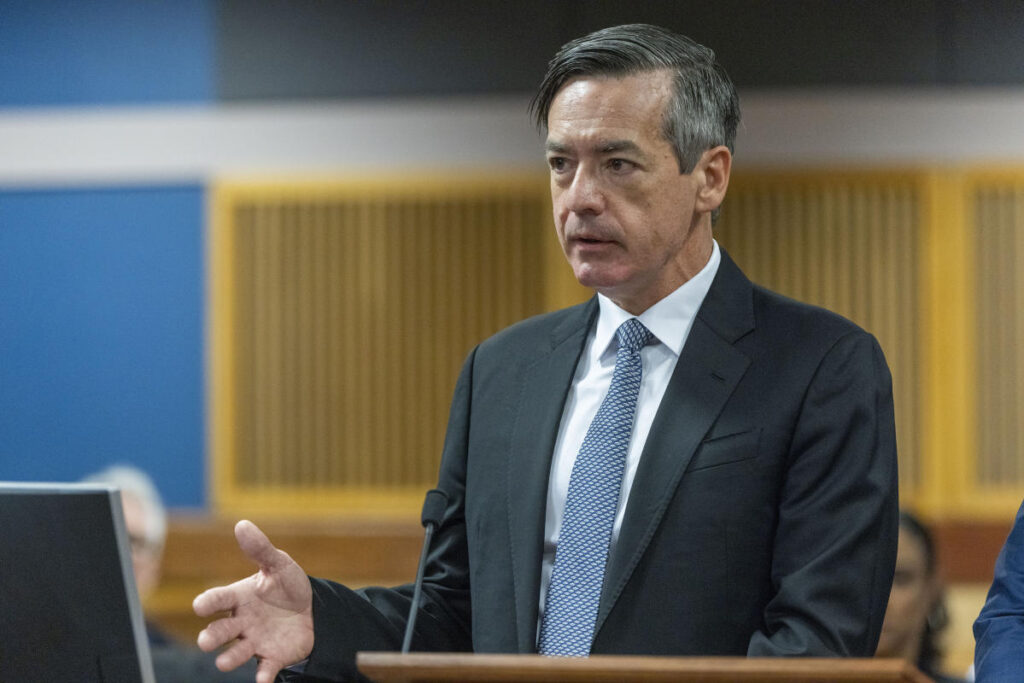In a significant development in the ongoing investigations surrounding the 2020 presidential election, Wisconsin prosecutors have filed 10 additional felony charges against three key figures associated with Donald Trump’s campaign. The charged individuals include Jim Troupis, Trump’s attorney in Wisconsin; Kenneth Chesebro, an advisor to the campaign; and Mike Roman, the director of Election Day operations. Initially, these individuals faced a single felony charge of forgery filed in June, but the newly filed charges reference their alleged roles in a scheme to falsely submit documentation claiming that Trump had won Wisconsin. Each charge carries a maximum penalty of six years in prison and a fine of $10,000, and the defendants are scheduled for their initial court appearances soon.
The allegations in Wisconsin align with a wider investigation into similar fraudulent activities involving the submission of alternate elector claims in several battleground states, including Arizona, Michigan, Nevada, and Georgia. Notably, the Department of Justice’s investigation into Trump’s involvement after the January 6th Capitol riot has also highlighted the scheme’s origins in Wisconsin. Despite facing legal repercussions, none of the ten electors who formally cast votes for Trump have been charged, although some have settled lawsuits relating to their actions during the 2020 election cycle. This indicates a complex legality surrounding the actions taken by the electors, which prosecutors are scrutinizing.
In Wisconsin, a complaint against Troupis, Chesebro, and Roman details the creation of a false document indicating Trump’s victory in the state and an attempted submission to Vice President Mike Pence. The 10 Republican electors, who were involved in signing the document, expressed in their statements to investigators that their intentions were misunderstood. They contended that their signatures were merely a precaution meant to keep their options open should a court later validate a different verdict concerning the election outcome. The complaint emphasizes that a significant number of these electors did not believe their signatures would be presented as indicative of an actual electoral result without a formal court decision.
In response to the charges against him, Troupis filed multiple motions to dismiss, asserting that their actions could not be classified as criminal. He argues that holding the meeting of Republican electors was a legitimate effort to maintain legal options pending court rulings—a claim he emphasizes should qualify as lawful under the circumstances. Moreover, Troupis contends that because federal law governs the electoral process, state-level charges filed by the Attorney General do not hold jurisdiction in this matter. This line of defense illustrates the complicated legal frameworks surrounding the electoral processes and the actions of state versus federal authority.
The charges introduced in Wisconsin are part of a broader pattern of legal troubles stemming from the efforts to contest the 2020 election results. Trump’s actions, and those of his associates, have led to federal racketeering charges alleging a conspiracy to overturn the election results. While his defense strategies have aimed to challenge the legitimacy of the proceedings, Trump is also navigating an indictment in Georgia connected to his alleged role in similar electoral manipulations. His attempts to have that case dismissed hinge on an assertion of presidential immunity when returning to office, which adds another layer of complexity to the evolving legal narrative.
As the legal proceedings unfold, they highlight the intricate interplay between state and federal legal systems and the ongoing debates over electoral integrity and legitimacy. The fallout from these actions could have substantial implications for future electoral processes and the accountability of political figures in states across the U.S. Particularly, the choices made by the Wisconsin electors and their attorneys reflect larger themes concerning legal interpretations of electoral law, the safeguarding of democratic processes, and the potential consequences of attempting to influence election outcomes through non-transparent or misleading means. This case underscores the significant tensions that have emerged in recent years regarding election integrity and the responsibilities of individuals operating within the political arena.

